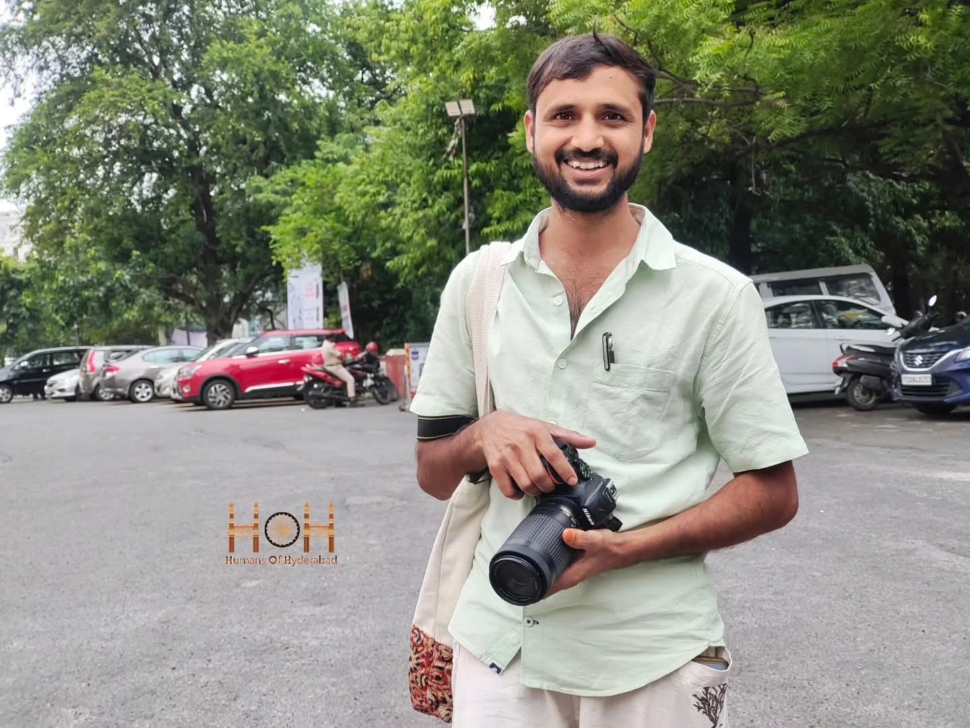“My name is Aravind A.V. I was born in a small village in Nalgonda district and grew up in Bhojya Thanda, a remote tribal hamlet near Medaram region of Telangana. My parents were into agriculture and water was always scarce in our region. For years, our family moved from place to place in search of work, and by the time I finished school, I had already lived in nearly five different villages. That constant moving taught me to take responsibility early and sparked the urge to create something lasting of my own.
During school, I worked as a paperboy in the mornings. In the evenings, I would read leftover newspapers and magazines, especially Telugu translations of articles from across the country and the world. Editorials, feature pages, and Sunday book supplements became my classroom. Most of my earnings went into buying books, and reading became my way of exploring the world beyond my village.
For my intermediate studies, I moved to Haliya in Nalgonda district and stayed in a government hostel. To support myself and pay my fees, I took up whatever work I could find — catering at functions, dressing as a teddy bear for events, or working night shifts in a rice mill, separating paddy from broken rice and husk. Alongside studies, I also supported my family whenever needed. I became the first in my family to graduate, completing my B.A. in History and Political Science from Miryalaguda.
While in Miryalaguda, I joined the local library and, in just one year, read about 300 books — works on society, liberty, democracy, and history. They gave me a framework to think critically about fairness, rights, and the systems shaping our lives.
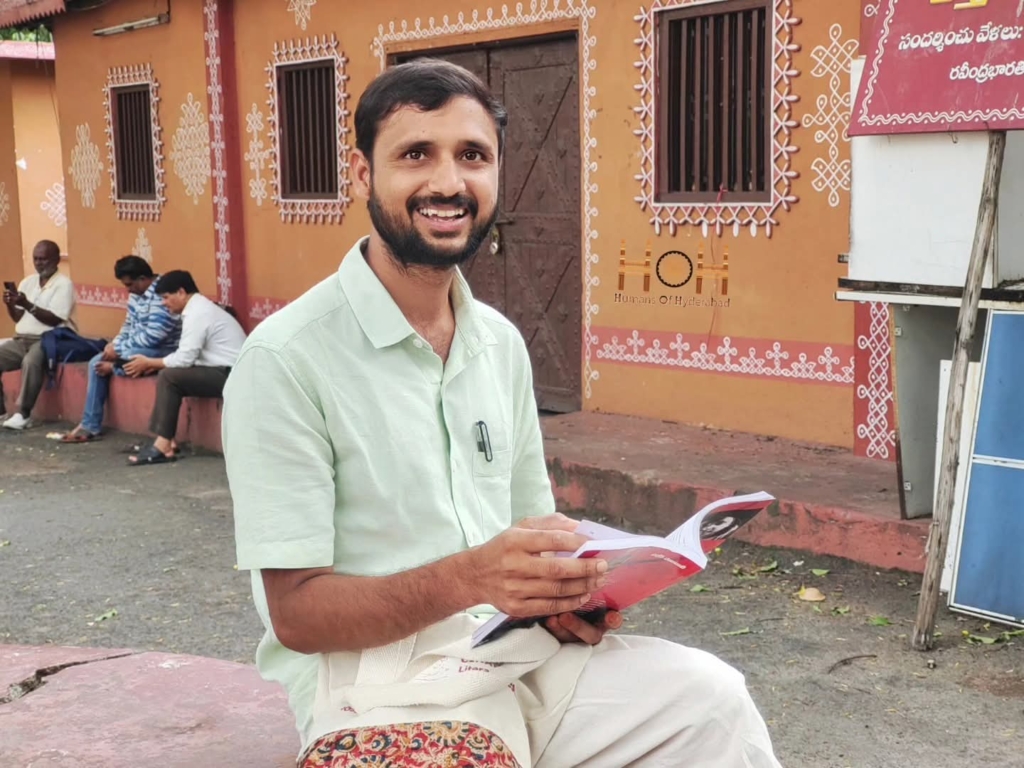
Between 2010 and 2014, the Telangana movement became a defining chapter in my journey. I took part in student programmes, recited poems, sang protest songs, and attended street meetings. The movement’s core motive — nillu, nidhulu, niyamakalu (water, funds, and employment) — went beyond politics for me. Growing up near Nagarjuna Sagar but watching nearby villages live without proper water for decades made the fight personal. It was about dignity, identity, and securing essentials our region had long been denied.
From childhood, literature and cinema fascinated me. Black-and-white Sunday films on Doordarshan were my earliest lessons in storytelling. Inspired by filmmakers like Satyajit Ray and Adoor Gopalakrishnan, I was drawn towards parallel cinema. Several novels also pushed me to explore culture and travel. I journeyed across South India and parts of Central India — staying with people, learning about cultures, and writing about what I saw.
Later, I moved to Hyderabad for higher studies and completed my Postgraduate degree in Mass Communication and Journalism from Telugu University. I ran the college magazine, wrote stories and poems, painted occasionally, and travelled with my camera. Reading about characters from different states made me want to meet them in person and write from lived experience.
A meeting with director Anudeep K.V. garu at a book read club opened the first door into cinema. I joined his writing department for the film Prince. Soon after, I received a call from the team of Kubera. I started as an intern and, through consistent work, became an associate director.
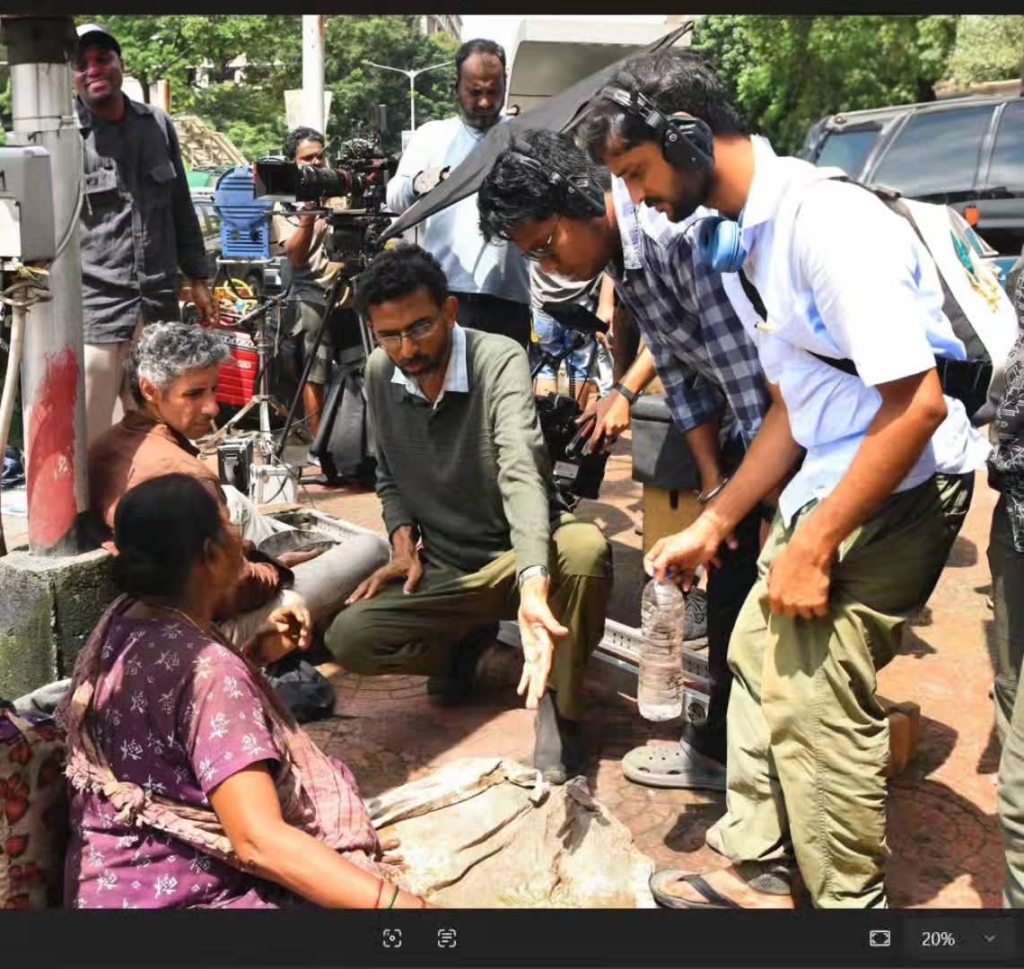
Working with Shekar Kammula garu and legendary art director Thota Tharani garu transformed my understanding of filmmaking. I coordinated multiple departments, scouted nearly 230 locations across Hyderabad, solved last-minute challenges, and worked under tight schedules.
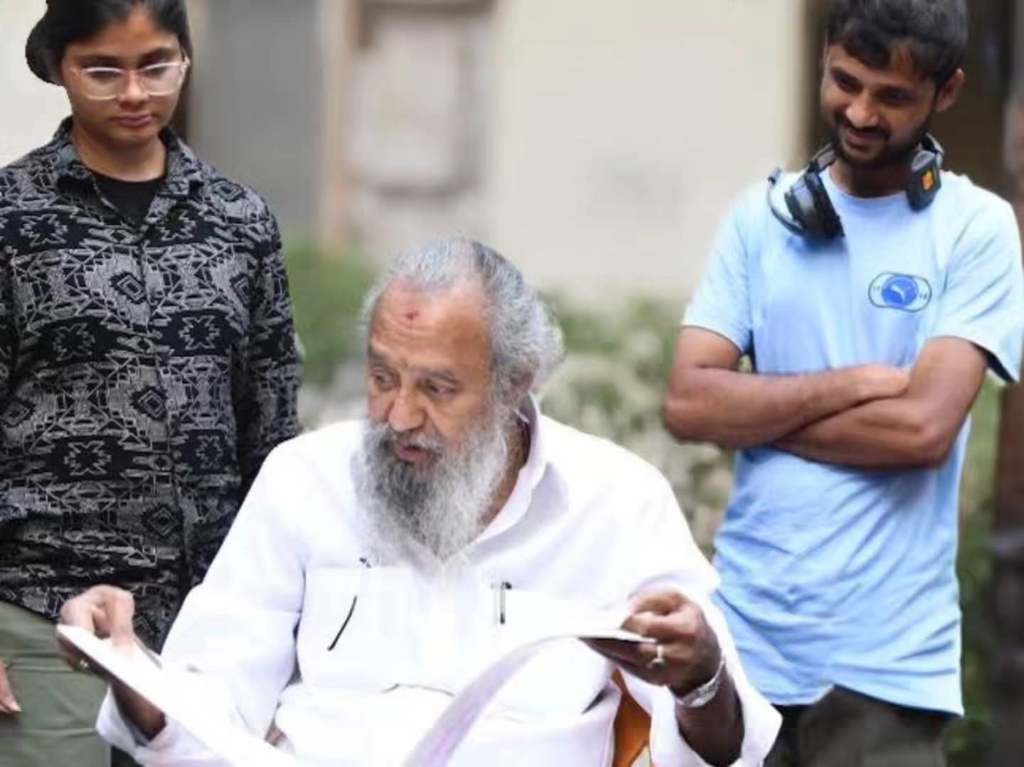
Watching Tharani garu work 12 to 14 hours a day with calm precision was a lesson in dedication.
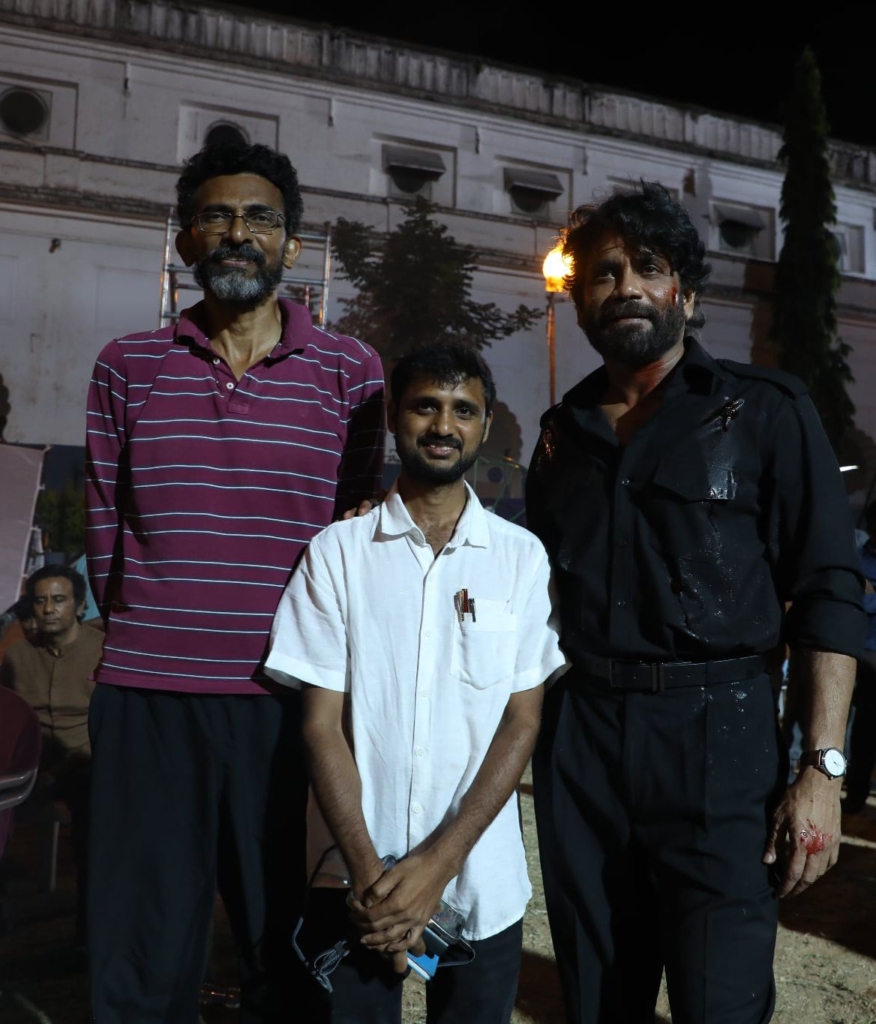
Shekar sir’s simplicity and humanity left a lasting impression on me. Being part of the Kubera movie as an associate gave me the chance to work across departments, witnessing how every craft comes together to create a scene.
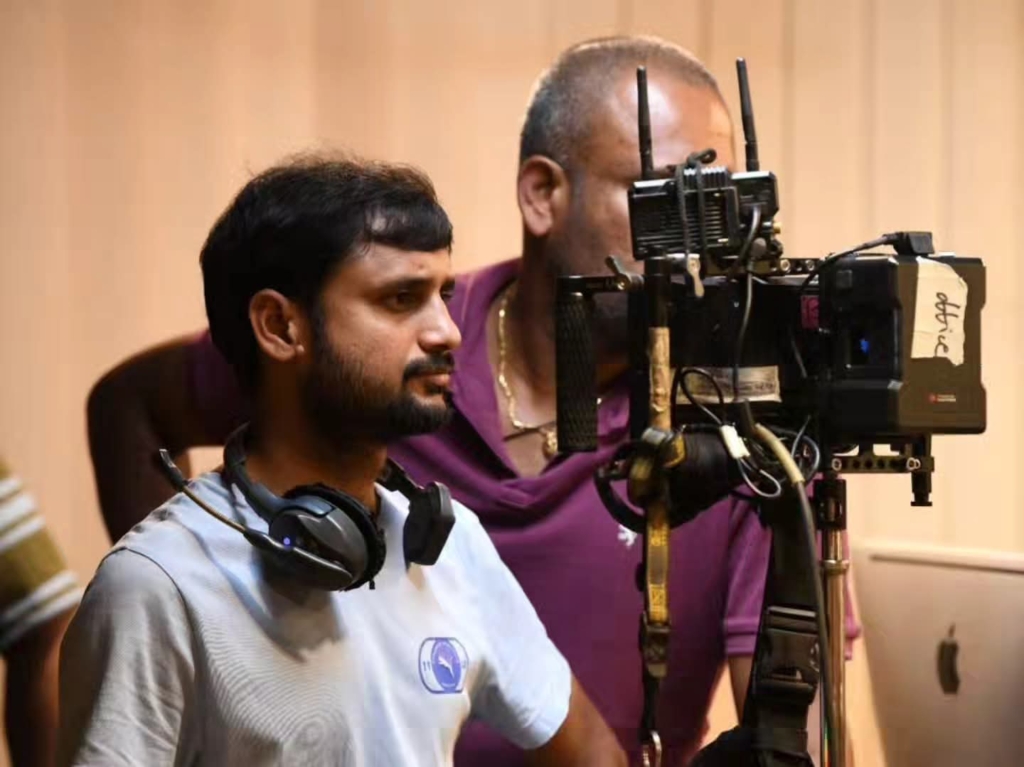
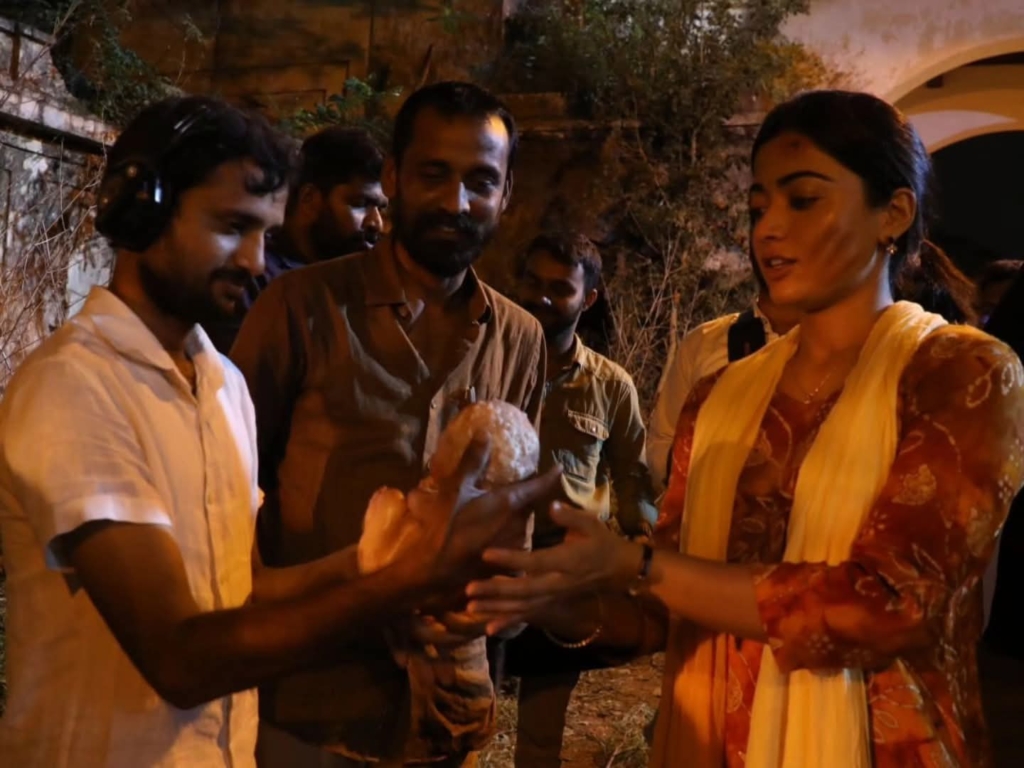
When Kubera released and my parents saw my name in the rolling credits, it became one of the proudest moments of their lives. That single line carried the weight of years of work, study, and struggle.
Cinema, photography, travel, and literature remain central to my life. Out of love for my parents, I carry their initials in my name — Aravind A.V. (Anjamma, Venkatayya).
I also share my thoughts at literary and cultural platforms, and have been invited twice as a speaker at the Book Brahma Literature Festival, held with a South India theme.
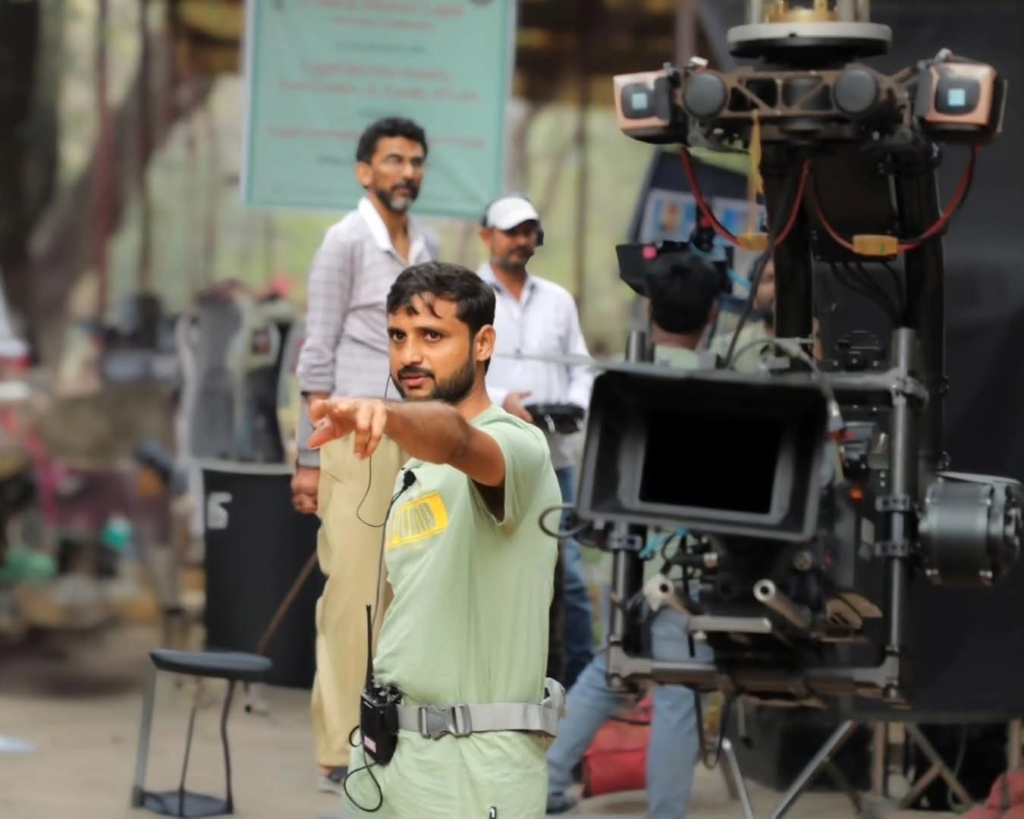
From a small hamlet to major film sets, my journey has been built on steady work, long days, books, and travel. And there are still many more stories waiting to be told.”
